
Faculty Affiliates
FORCES proudly works with a core of Purdue social scientists and experts who support us as Faculty Affiliates, offering their academic, research, and leadership skills on myriad subjects germane to our broad mi
ssions. We are committed to presenting and respecting many points of view and will periodically showcase these fine collaborators' efforts.
Colonel Ken Callahan, Ph.D.
Commander, Air Force ROTC, Detachment 220
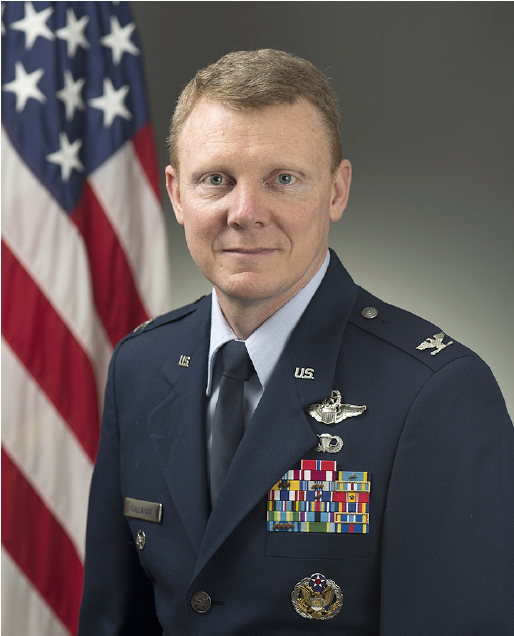
Colonel Ken Callahan is the Commander, Air Force Reserve Officer Training Corps, Detachment 220, and aerospace studies professor at Purdue University. Before his current assignment, he
was th
e Air War College associate dean at Maxwell Air Force Base, Alabama. Callahan is a command pilot with more than 3,000 hours in the C-141, C-5, T-37, a
nd MQ-1B and has deployed numerous times to support combat operations.
From 2009 to 2010, he comm
anded the 46th Expeditionary Reconnaissance Squadron at Joint Base Balad, Iraq, overseeing all Air Force remotely piloted launch, recovery, and b
ase defense activities in Iraq. He a
lso served as the director for remotely piloted aircraft capabilities, Headquarters Air Staff, the Pentagon, Washington D.C., where he advised the deputy chief of staff for intelligence, surveillance and reconnaissance on current and future remotely piloted aircraft capabilities and policies.
Callahan entered the Air Force in 1992 as a distinguished military graduate of the U.S. Air Force Academy. Throughout his career, he has assessed, recommended, and integrated new technologies for combat operations in the Air Force. At the U.S. Transportation Command, he formed and led an office responsible for assessing new asset in-transit visibility technology and, while on the Air Staff, he worked in the A2 Innovations office assessing the utility and viability of defense contractor research projects. Callahan has a doctorate of management, focusing on organizational leadership and the integration of disruptive technologies, and a Ph.D. in history, specializing in twentieth-century American history and the history of technology.
Stacey L. Connaughton, Ph.D.
Director, Purdue Policy Research Institute
Stacey L. Connaughton is a professor in Purdue University’s Brian Lamb School of Communication, director of the Purdue Policy Research Institute (PPRI), and director of the Purdue Peace Project (PPP), which is housed in the PPRI. Her research examines leadership and identification in virtual teams/organizations and political violence prevention.
As the director of the Purdue Peace Project, Connaughton led project development, monitoring, and evaluation for locally-led political violence prevention initiatives in Ghana, Liberia, and Nigeria. She served as a thought leader on distributed leadership for the U.S. Army Research Institute’s Leader Development Unit. A consultant to USAID’s Liberia Strategic Analysis Program, she directs the development of a mentorship program and leadership curriculum designed to develop Liberia’s next generation of leaders. She has also presented her research to industry, military, and higher education audiences and facilitated workshops and written guidebooks about virtual teams, leadership, team building, strategic planning, and effective communication in the United States, Canada, China, and Saudi Arabia. She earned her doctorate from The University of Texas at Austin.
Connaughton has received Purdue’s 2017 Faculty Engaged Scholar Award, the 2020 Provost’s Graduate Mentor Award, and the 2018 Trailblazer Award – an award that honors a midcareer, tenured faculty member for innovation and impact in research. She previously served as Lamb School’s associate head, its director of graduate studies, and associate chair of Purdue’s Social Sciences Institutional Review Board. Her work is supported by the National Science Foundation, the Carnegie Corporation, and the Russell Sage Foundation.
T. Cole Jones, Ph.D.
Assistant Professor of History, Purdue University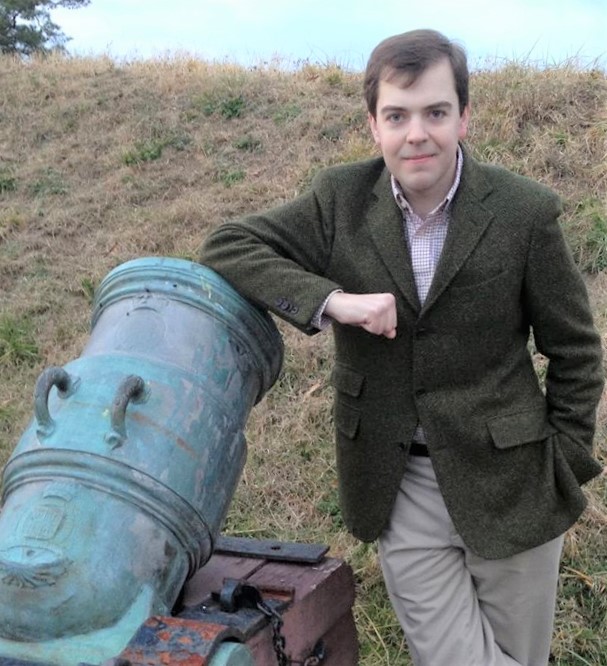
Cole Jones is an assistant professor of history at Purdue University. He is a military historian with a specialty in the era of the American Revolution. Jones is the author of "Captives of Liberty: Prisoners of War and the Politics of Vengeance in the American Revolution" (Penn Press, 2020), as well as numerous scholarly articles. Before coming to Purdue, he was a fellow of the United States Army Center of Military History at Fort McNair. Jones is currently writing a history of the first year of the Revolutionary War in North Carolina. In addition to his scholarship, Jones teaches courses on colonial and revolutionary American history, as well as American military history.
Randy Roberts, Ph.D.
Distinguished Professor of History, Purdue University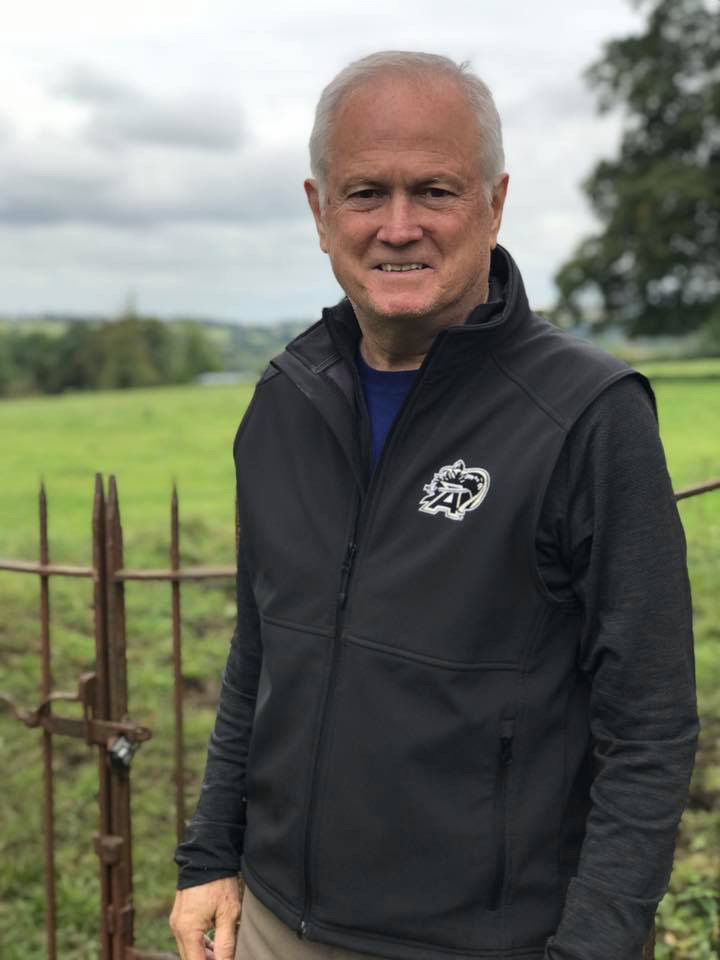
Randy Roberts is a Purdue distinguished professor of history and a Purdue 150th Anniversary professor, an honor bestowed on just 10 faculty members last year. He specializes in U.S. and presidential history, U.S. sports history, and the history of Hollywood and popular culture.
Known as a great mentor to his students, Roberts has received numerous teaching awards, including Indiana Professor of the Year, Purdue’s Morrill Award, and the Charles B. Murphy Award for Outstanding Undergraduate Teaching. He earned the College of Liberal Arts Kenneth Kofmehl Outstanding Undergraduate Teaching Award and is a two-time winner of Liberal Arts’ Teacher of the Year Award. He is a founding member of the Teaching Academy. Roberts is the author or co-author of more than 20 books, including books on baseball, football and boxing and diverse personalities such as John Wayne, Mickey Mantle, Mohammed Ali and Malcolm X. He has taught well-attended courses on both world wars and has been featured as an expert on the three major networks, ESPN, HBO, and the History Channel. Roberts has taught well-attended courses on both world wars and served as visiting professor of history at the U.S. Military Academy at West Point. He has led tours to Europe, including many that were military-history-themed. His most recent book, co-written with historian Johnny Smith, is “War Fever: Boston, Baseball, and America in the Shadow of the Great War,” which examines World War I Boston and the intersection of Babe Ruth, a German-American symphony conductor, and a Harvard-educated Medal of Honor recipient.
Swati Srivastava, Ph.D.
Assistant Professor of Political Science, Purdue University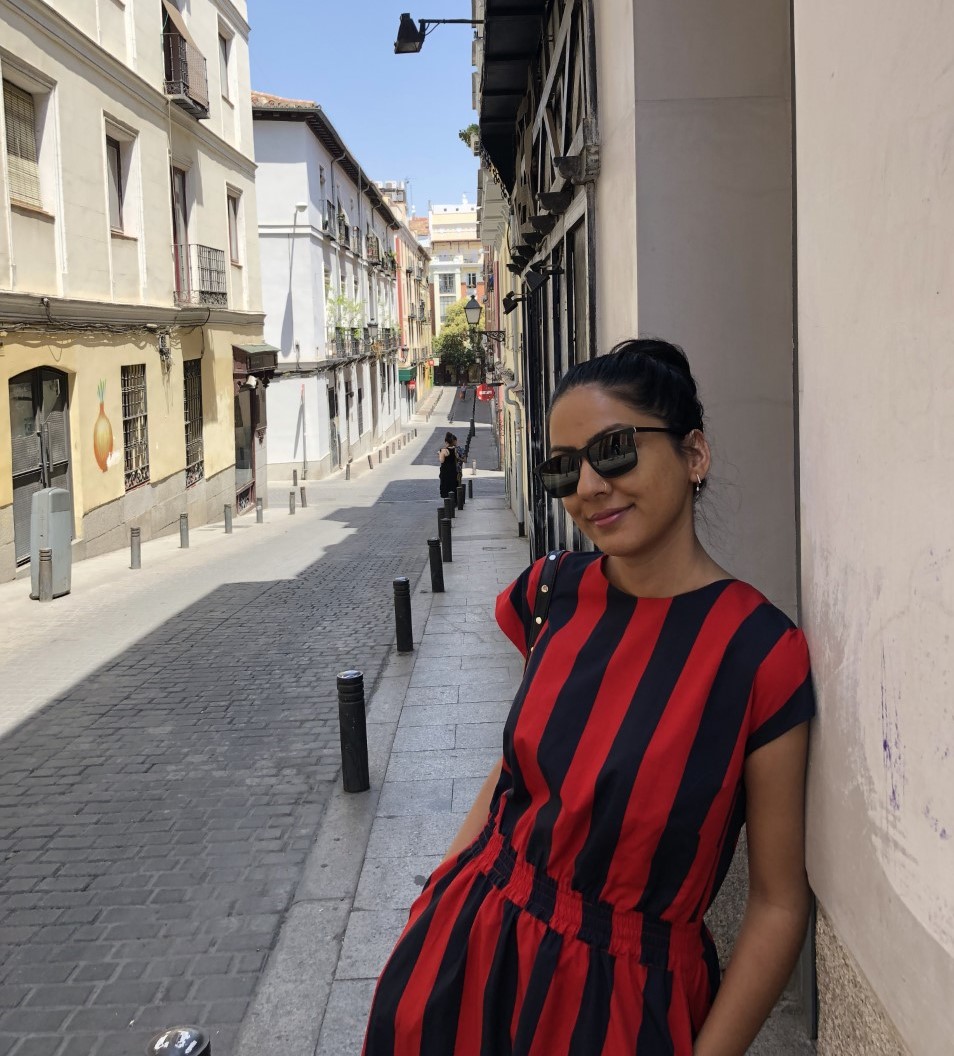
Swati Srivastava is an assistant professor of political science at Purdue University. She received her doctorate in political science from Northwestern University, where she held affiliations with the Buffett Institute for Global Studies and the Center for Legal Studies. She also holds a master’s degree in international relations from the University of Chicago and a bachelor’s degree in political science and global studies from UCLA. Before joining the faculty at Purdue in 2018, she was a doctoral fellow with the Andrew Mellon Foundation and the American Council of Learned Societies.
Srivastava researches sovereignty and global governance, especially public-private relations between governments, corporations, and NGOs. Her book manuscript, "Hybrid Sovereignty in World Politics," examines the English East India Company, Blackwater, the International Chamber of Commerce, and Amnesty International. Her latest research evaluates the political power and responsibility of big tech like Google and Facebook through algorithmic governance. Srivastava uses original archival data along with content analysis, comparative historical analysis, event history analysis, network analysis, and text-as-data approaches.
Srivastava teaches undergraduate courses in political science on international relations and graduate courses on international relations and global non-state actors. She is a faculty affiliate with the Cornerstone integrated liberal arts program that focuses on transformative texts and oral communication. Srivastava also runs a Purdue undergraduate research group that examines algorithmic governance.
Carolyn Lin
Professor of Communication, University of Connecticut
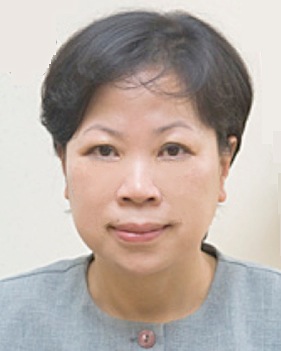 Carolyn A. Lin received her Ph.D. from the Media and Information Department of Michigan State University. Her research and teaching interests focus on environmental, science, risk, political, marketing, intercultural, and computer-mediated communication. Her recent research covers such topics as public diplomacy in East Asia and communication challenges impacting our global environment (e.g., climate change and pandemic risks). Her research has been funded by the NIH and NSF, among others. She has recently completed work on East Asian public diplomacy communication that explores the effects of emotional contagion, environmentalism, and information source credibility on public opinions toward China. Other relevant research addresses the Chinese press system, cultural values, and privacy regulation as well as China’s economic/political interest in the development of digital media. She has also studied the agenda-setting effects of social media discourse on politics and public safety in China, in addition to publishing a co-edited book on International Communication. Dr. Lin speaks multiple Chinese dialects and has delivered invited keynotes/speeches at universities in China, Taiwan, and Hong Kong (e.g., Peking University, Tsinghua University, National Taiwan University, National Chengchi University, Chinese University of Hong Kong, and City University of Hong Kong). A recipient of the University of Connecticut Distinguished Research Faculty award, she is also the founder of the Communication Technology Division at the Association for Education in Journalism & Mass Communication.
Carolyn A. Lin received her Ph.D. from the Media and Information Department of Michigan State University. Her research and teaching interests focus on environmental, science, risk, political, marketing, intercultural, and computer-mediated communication. Her recent research covers such topics as public diplomacy in East Asia and communication challenges impacting our global environment (e.g., climate change and pandemic risks). Her research has been funded by the NIH and NSF, among others. She has recently completed work on East Asian public diplomacy communication that explores the effects of emotional contagion, environmentalism, and information source credibility on public opinions toward China. Other relevant research addresses the Chinese press system, cultural values, and privacy regulation as well as China’s economic/political interest in the development of digital media. She has also studied the agenda-setting effects of social media discourse on politics and public safety in China, in addition to publishing a co-edited book on International Communication. Dr. Lin speaks multiple Chinese dialects and has delivered invited keynotes/speeches at universities in China, Taiwan, and Hong Kong (e.g., Peking University, Tsinghua University, National Taiwan University, National Chengchi University, Chinese University of Hong Kong, and City University of Hong Kong). A recipient of the University of Connecticut Distinguished Research Faculty award, she is also the founder of the Communication Technology Division at the Association for Education in Journalism & Mass Communication.
Kira Danielle Graves, Ph.D.
Director for the Critical Thinking Enterprise in Fort Leavenworth, Kansas
Dr. Graves is the Assistant TRADOC G-2, Director for the Critical Thinking Enterprise (CTE) at Fort Leavenworth, Kansas since 2016. The mission of the CTE is to continuously review and refresh our understanding of the Operational Environment, train leaders on critical, creative, and strategic thinking, and provide outreach for the G-2 to Academia and Industry. Dr. Graves leads the “Learning In A New Era” (LIANE) initiative and is transitioning the Electronic Intern Initiative into a TRADOC wide program. She teaches the “Future Hunters” elective at the Command and General Staff Officer College at Army University.
From 2015-2016, Dr. Graves became the Director of the TRADOC G-29 supporting two main endeavors. The first is the G-9 mission to advocate TRADOC positions in the Nation Capital Region to shape the future force and inform resourcing with HQDA, other Services, OSD, Joint Staff, and Congress. Dr. Graves’s second endeavor was the Mad Scientist Initiative which facilitated continuous dialogue to help the Army think about the evolution of the Operational Environment (OE), and the effects of all aspects of technology on the far future of Armed Conflict, continuously learn, adapt, and innovate and allow for broader engagement in problem-solving.
Dr. Graves lived in the Washington DC Area from 1990-2016 and worked for a number of private and government organizations. Dr. Graves began working with the US Army Training and Doctrine Command (TRADOC) G-2, US Army in 2005.
Dr. Kira Graves received her BS in Chemistry (with Honors) from the University of Michigan, Ann Arbor, in 1986 and her Ph.D. in Synthetic Organic Chemistry at the University of California, Irvine in 1990.
Bert Chapman, M.A., M.S.L.S.
Professor of Library Science, Purdue University
Bert Chapman is a Professor of Library Science in 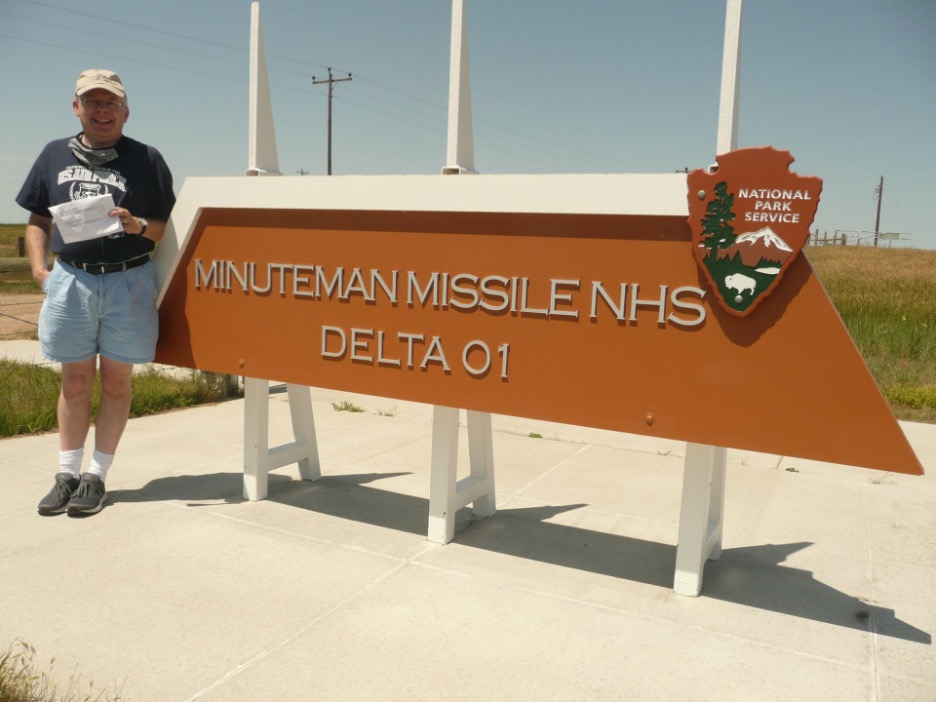 Purdue University Libraries and School of Information Studies. His collection, instructional, and research responsibilities within the Libraries encompass government information, history, and political science. He has authored six books including Global Defense Procurement and the F-35 Joint Strike Fighter (Cham: Palgrave-Macmillan/Springer, 2019). His scholarly research on national and international security topics and the literature accompanying these subjects have been published in Astropolitics, Geopolitics, History, and International Relations, Journal of Advanced Military Studies, Korean Journal of Defense Analyses Security Challenges, Security and Defence Quarterly, and Space Policy. Chapman is an affiliate of the Mackinder Forum which studies and promotes the use of classical geopolitics to analyze historical and current international security matters. He is particularly interested in demonstrating to students and scholars how to find and use the wide variety of publicly available and credible information resources on national and international security topics from democratic governments and public policy research institutions.
Purdue University Libraries and School of Information Studies. His collection, instructional, and research responsibilities within the Libraries encompass government information, history, and political science. He has authored six books including Global Defense Procurement and the F-35 Joint Strike Fighter (Cham: Palgrave-Macmillan/Springer, 2019). His scholarly research on national and international security topics and the literature accompanying these subjects have been published in Astropolitics, Geopolitics, History, and International Relations, Journal of Advanced Military Studies, Korean Journal of Defense Analyses Security Challenges, Security and Defence Quarterly, and Space Policy. Chapman is an affiliate of the Mackinder Forum which studies and promotes the use of classical geopolitics to analyze historical and current international security matters. He is particularly interested in demonstrating to students and scholars how to find and use the wide variety of publicly available and credible information resources on national and international security topics from democratic governments and public policy research institutions.
